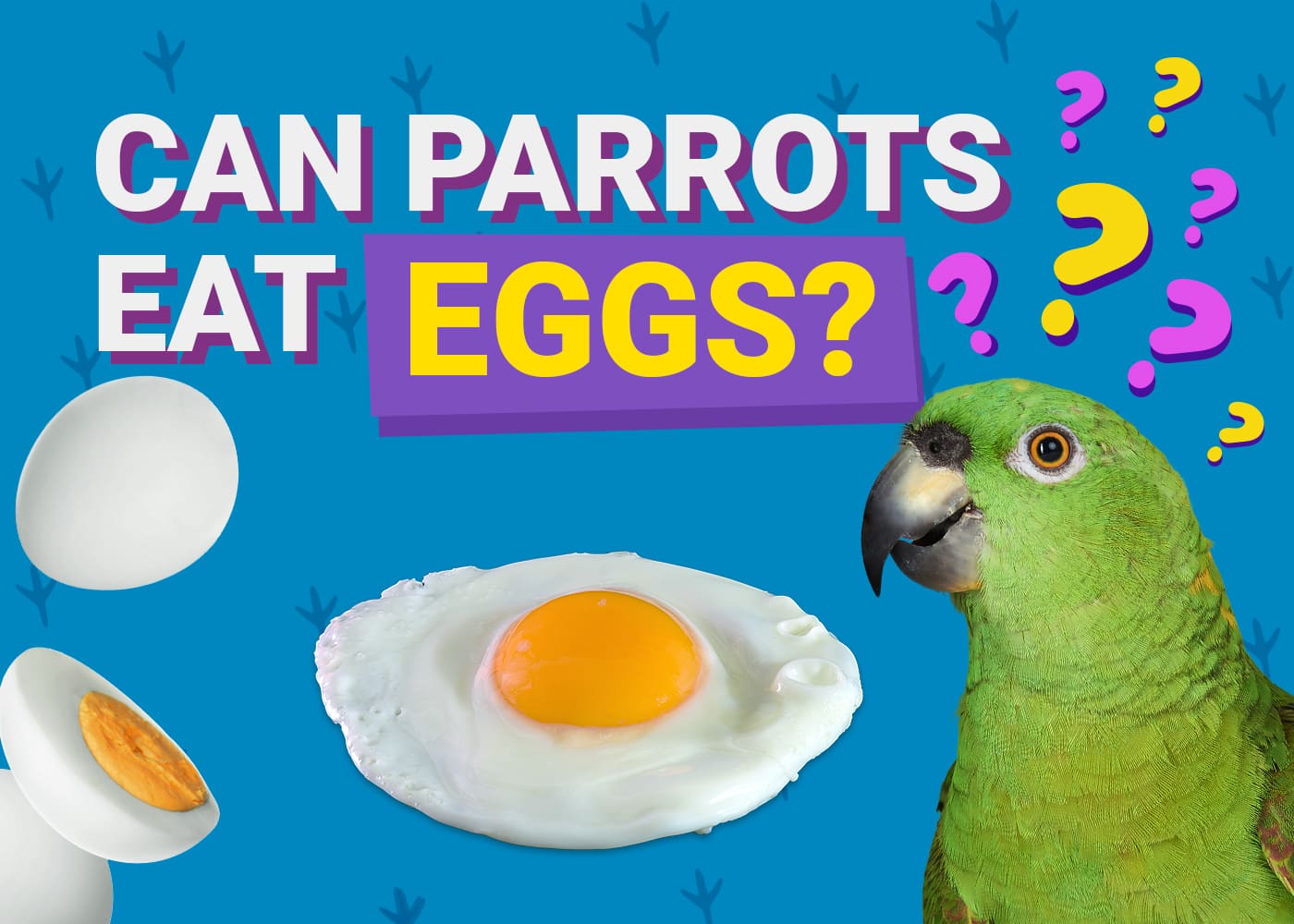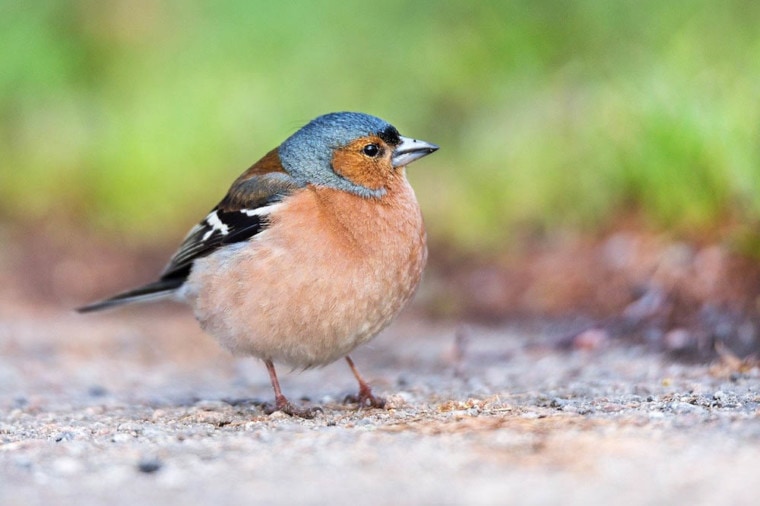
Wild finches are mainly seed eaters. They consume seeds from a wide variety of plants, including grasses. However, they are also entirely opportunistic. They may also consume fruits, berries, and other vegetation that become available during certain parts of the year. A finch’s diet may consist mostly of these “extras” during parts of the year in some locations.
These birds aren’t heavy consumers of insects, though they may eat those opportunistically as well.
In captivity, a finch’s diet should consist of primarily seeds, just like in the wild. However, most commercially available seed mixes are not appropriate. They are far too high in fat and low in nutrients. Most do not include the same types of seeds finches would eat in the wild.
Therefore, these birds should be fed appropriate, pelleted food. These foods are specifically designed for a finch’s nutrition and commonly contain everything the bird needs.
It is also impossible for a finch to selectively eat a pellet mix – a common problem when feeding seed mixes. Sometimes, the captive bird may only pick out one kind of seed that is their favorite and spread the others. Of course, this is usually the fattest and unhealthiest seed in the mix.
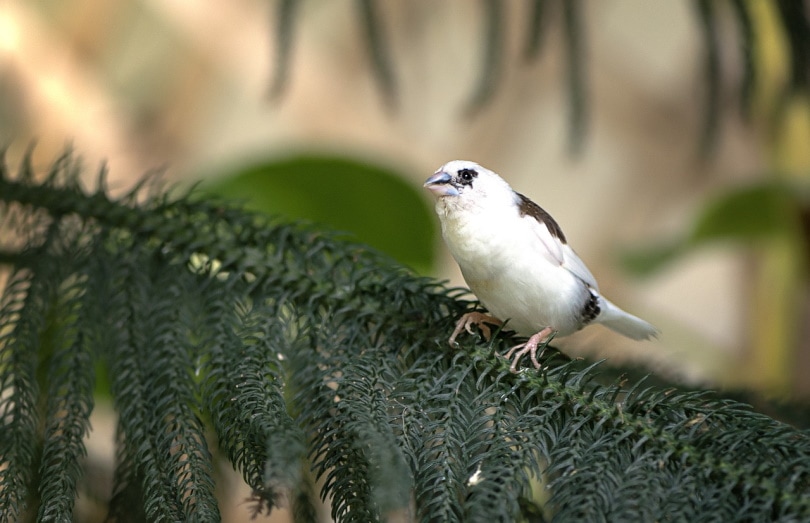
What Should I Feed My Finch?
Nutrition is essential for your bird’s health – but it is commonly an overlooked part of bird ownership. Many bird owners purchase a seed mixture that is advertised for finches. However, these are usually not appropriate and may lead to health problems like obesity.
Just like any animal, birds are what they eat. If you feed an improper diet to your finch, you can’t expect them to thrive.
The most common finch diets are commercial seed mixes. These mixes usually contain 2-5 different seeds. While finches eat seeds in the wild, these seed mixes often include high-fat seeds that the bird would not eat naturally. They also tend to be low in nutrition.
If your bird mostly lives on these seed mixes, they are likely to fall into ill health and develop nutritional deficiencies.
It is also common for finches to selectively eat these mixes – picking out one or two of their favorite seeds. Finches cannot live on a single type of seed. They will quickly develop deficiencies.
Instead, most finches should be fed only one teaspoon of seeds per day.
Pellets should be the central part of a finch’s diet, as they contain the nutrients your finch needs. They also can’t be selectively fed on, which eliminates some chance for nutritional deficiencies. Pellets should be a minimum of 70% of your finch’s diet. More is often better.

Do Finches Eat Fruits and Vegetables?
Yes. Both wild and captive finches will consume fruits and veggies occasionally. In the wild, finches will eat these foods as they become available. Usually, they can only be found seasonally.
In captivity, about 20% of your bird’s diet should be vegetables and fruits.
Pale and water-rich vegetables should be avoided. Avocado is also toxic to birds and should not be offered.
Cut the fruit or vegetable into tiny pieces, and be sure to wash thoroughly. Finches are small birds, so they do not need very much in the least.
Selective feeding can happen if the same fruits and veggies are continuously offered. Finches are prone to just seeking out their favorite food. In these cases, we recommend eliminating the favorite food from their diet.
What Shouldn’t You Feed a Finch?
Many commercial bird foods are not appropriate for finches. As we’ve discussed, most seed mixes are not appropriate for finches. Therefore, you should avoid feeding seed mixes as the bulk of your bird’s diet.
Millet counts as a seed and should only make up 10% of your bird’s diet at most. Millet spray and branches should be taken into account – even if they aren’t technically in a seed mix.
Millet is tasty but offers very little nutrition for finches.
You should also avoid offering honey sticks or similar treats. While these are tasty, they are far too much for most finches. Any treats your finch receives should also be healthy – such as fruits and vegetables. Commercial treats are far too high in fat to be helpful for most birds.
Some foods claim to help your birds sing better or molt faster. However, these are primarily false promises. There is no evidence that specific seed mixes can help with your bird’s singing or molting.
Your bird will molt and sing best when they are fed a quality diet – which should include primarily pellets.
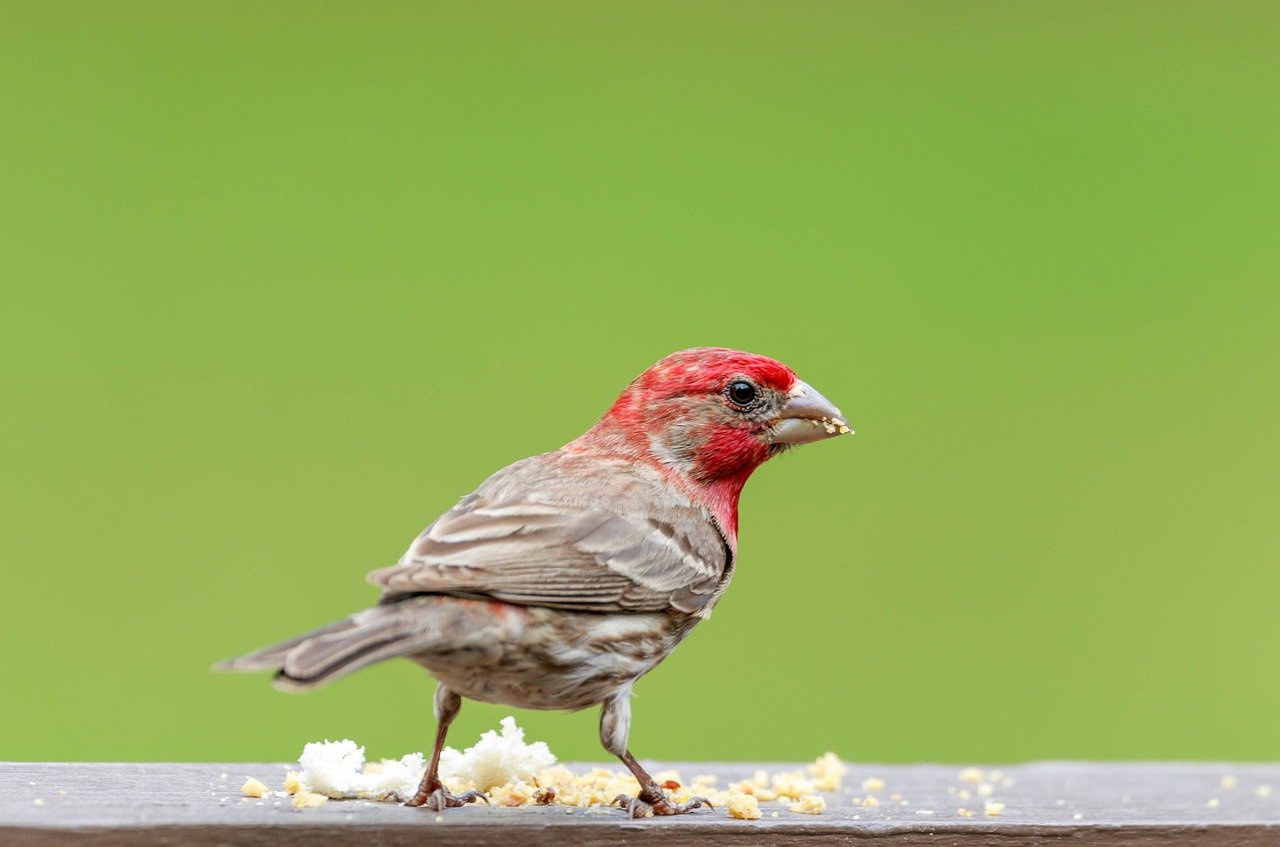
Can Finches Eat People Food?
When in doubt, we recommend not feeding your finch people food. Many people foods are harmful to birds – such as avocado.
Birds are lactose-intolerant, so any dairy should be avoided. This includes cheese and yogurts.
Finches may enjoy minimal amounts of meat, fish, and eggs. But these are not necessary for their diet and shouldn’t make up any considerable portion of it. For the most part, finches are better off eating something else – like their pelleted diet or high-quality fruits.
Junk foods should be avoided – including chocolate and very salty foods. These can be potentially toxic for birds.
Because we are larger, we can handle far more salt than your average finch. Chips, pretzels, and popcorn can easily contain too much salt for a small bird, causing health problems to develop.
Do Finches Need Vitamin Supplements?
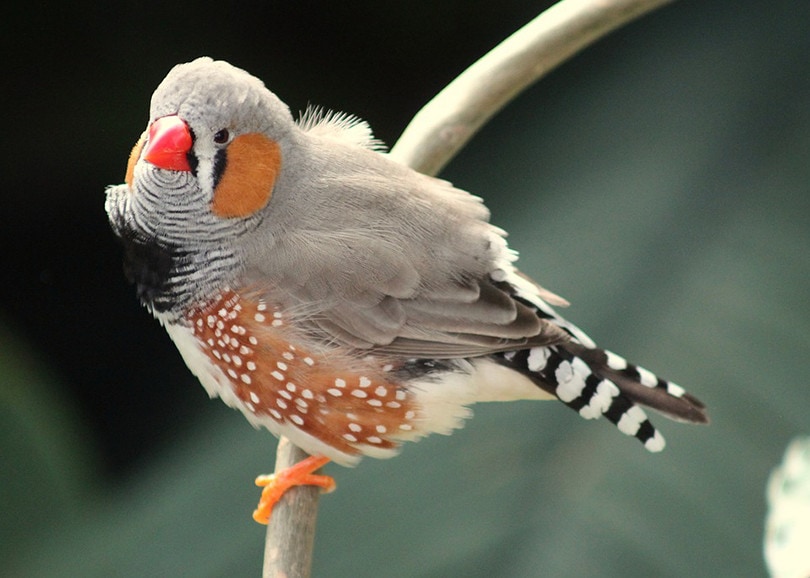
If they are fed a proper diet, finches usually don’t need any dietary supplements. Pelleted diets provide all the nutrients your bird needs, allowing you to skip supplementation altogether.
Of course, seed mixtures do not provide for all your bird’s needs. If your bird is eating a mostly seed diet, it is recommended that you work to switch them to a pelleted diet. Supplements may help cover some gaps, but a pelleted diet is best.
Certain birds may need supplements during certain times. For instance, egg-laying birds may require extra calcium. These supplements come in a powdered form that can be added to their foods. Water additives are also available, but powdered supplements are more accessible to dose.
Plus, you can tell if your bird is eating the powder – something that is impossible to do with a water additive.
Powders should not be added to seeds. It will be discarded as the bird removes the shell – leading to very little being consumed. Birds that eat mostly seeds will need to use a water additive instead.

Do Finches Eat Sunflower Seeds?
If offered, most finches will eat sunflower seeds. However, that doesn’t mean that sunflower seeds are good for them.
Many finches love sunflower seeds due to their high-fat content. They are very adept at finding these seeds once they know what to look for. Many bird watchers are amazed at their ability to dig them out of bird feeders.
When consuming them in the wild, most finches will not eat enough sunflower seeds to affect their health. They will also be locating other seeds – many of which are better for their health.
However, if your bird has a steady supply of sunflower seeds in captivity, its health can be adversely affected. Many captive finches will selectively eat sunflower seeds, causing health problems like obesity.
Sunflower seeds are not very nutritionally dense and very high in fat. Therefore, they are not recommended for finches except as a treat. Pellets and healthier food items should be provided instead.

How Do I Attract Finches to My Garden?
Finches love seeds and are not picky about what they eat. Most of them will happily eat whatever seeds you provide.
However, many do have their favorites. Sunflower seeds are a standard favorite, so try adding a few to your feeder.
Finches all need to feel safe to use a feeder. Place them near trees – not out in the open. Finches prefer to hide and make short trips to feeders. If there aren’t any trees around, finches may not feel safe visiting.
Seed-bearing plants are popular amongst finches. If you’re looking to attract finches to your garden without using a feeder, we recommend planting plenty of seed-producing plants. Brightly colored plants may also attract them – as well as brightly colored ribbons in a pinch.
Be sure to clean your feeders regularly. Finches will often avoid dirty feeders. They are less able to manage the grim due to their smaller size.
Final Thoughts
Wild finches mostly eat seeds of all sorts, including those from grasses. They eat seeds opportunistically – meaning that they will consume practically anything available. As the seasons allow, they also eat fruits and other vegetation.
Usually, this only occurs during certain times of the year with fruits are ripe.
In captivity, finches should not be fed seeds primarily, though. Commercial seed mixes do not include the nutrients finches need to thrive – and they also tend to be relatively high in fat. Instead, choose a pelleted food for your finch.
Related Read:
- 7 Popular Types of Pet Finches (With Pictures)
- What Do Baby Birds Eat? Feeding Tips & Dietary Needs
- 7 Best Cages for Finches: Reviews & Top Picks
Featured Image Credit: Pixabay


